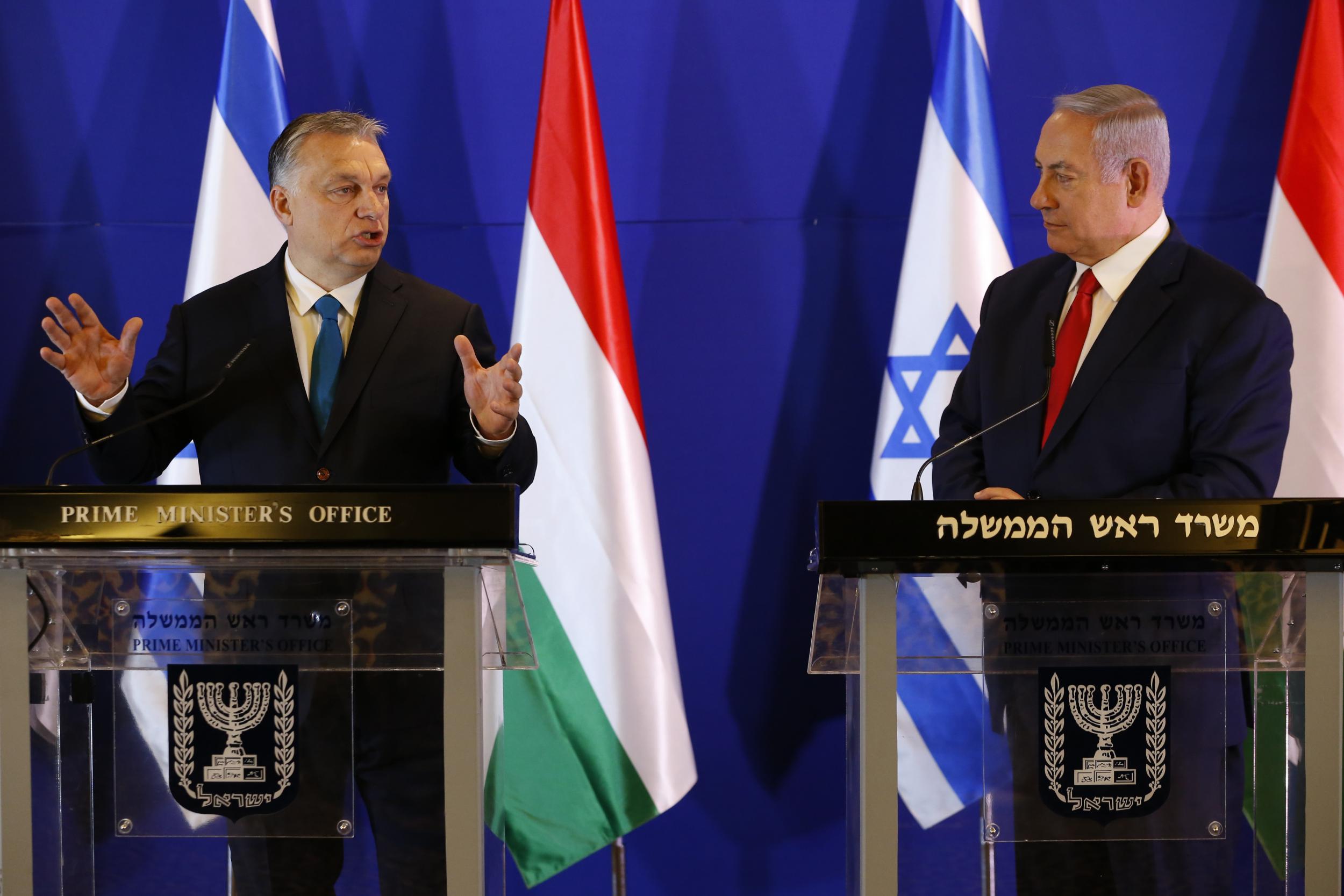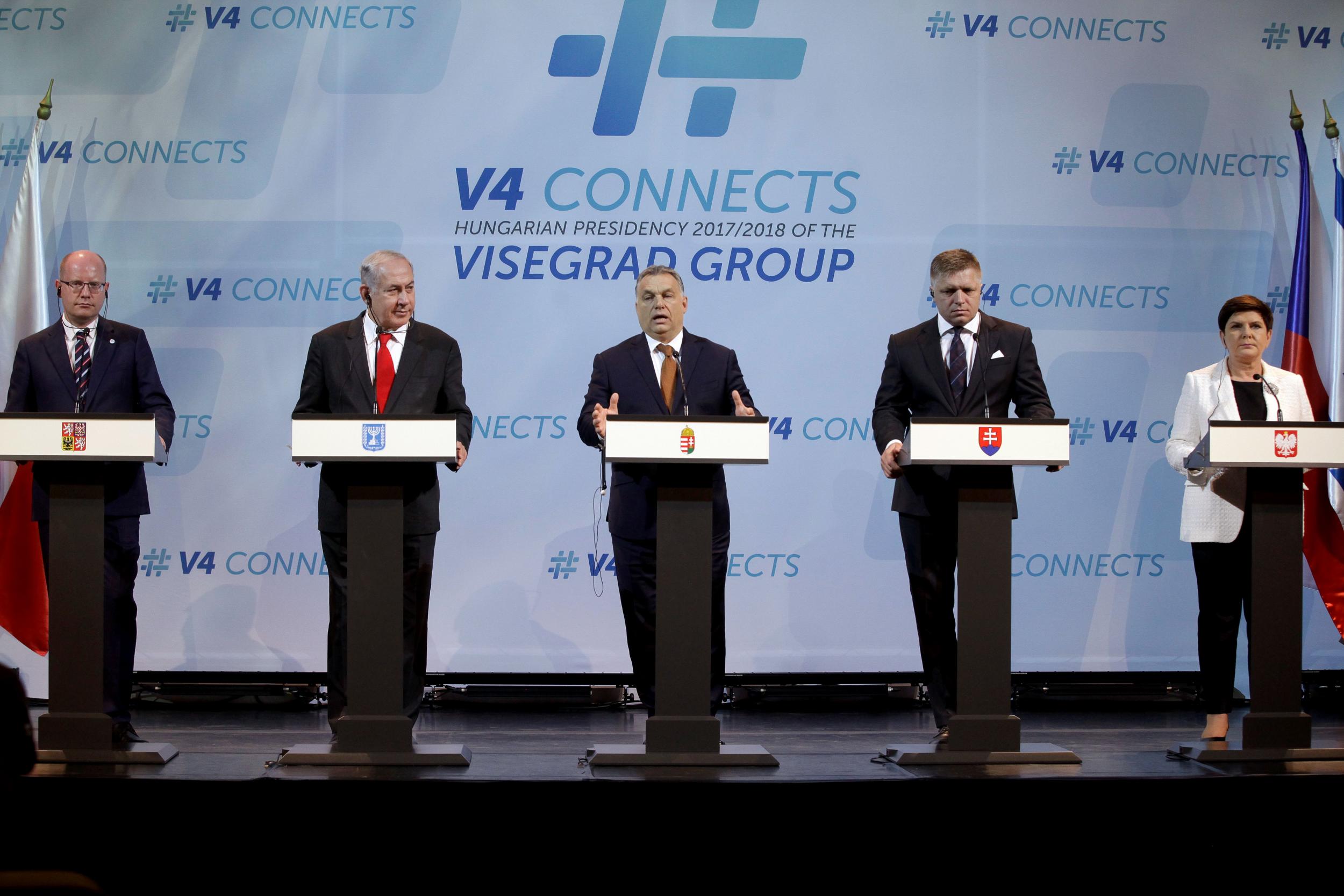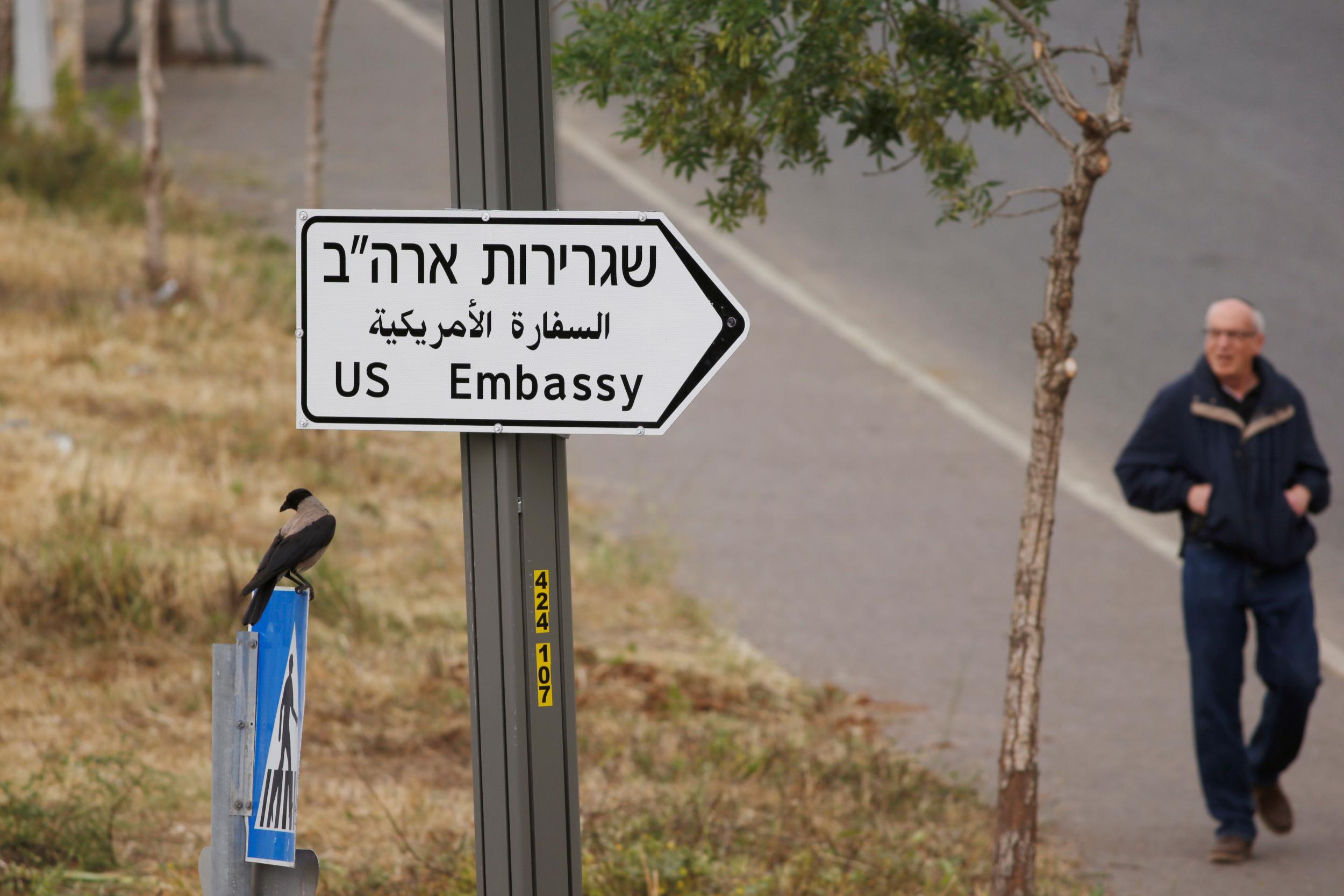US ambassador urges Israel to apologise to Poland over Holocaust accusations as diplomatic row grows
Poland’s deputy foreign minister says Warsaw is still waiting for Israel to apologise for ‘shameful, scandalous and slanderous statements’ which triggered collapse of key Europe summit

Your support helps us to tell the story
From reproductive rights to climate change to Big Tech, The Independent is on the ground when the story is developing. Whether it's investigating the financials of Elon Musk's pro-Trump PAC or producing our latest documentary, 'The A Word', which shines a light on the American women fighting for reproductive rights, we know how important it is to parse out the facts from the messaging.
At such a critical moment in US history, we need reporters on the ground. Your donation allows us to keep sending journalists to speak to both sides of the story.
The Independent is trusted by Americans across the entire political spectrum. And unlike many other quality news outlets, we choose not to lock Americans out of our reporting and analysis with paywalls. We believe quality journalism should be available to everyone, paid for by those who can afford it.
Your support makes all the difference.Israel’s acting foreign minister should apologise to Poland for accusing the country of being antisemitic, the US ambassador to Warsaw has said.
Georgette Mosbacher’s advice came after an escalating diplomatic row between Israel and Poland saw a key summit in Jerusalem cancelled.
On Wednesday, she said the partnership between the two countries was too important for the wider region to be damaged by “rhetoric”.
Just days ago, the US held a major conference in Warsaw on Middle East security in an attempt to cobble together support for Washington’s attempts to isolate Iran. But the spat between Poland and Israel threatens to overshadow and undo the US manoeuvring.
Ms Mosbacher had earlier written on her Polish-language Twitter account that comments by Israel Katz, Israel’s acting foreign minister, were “offensive” and out of place.
She said: “I just felt that two strong allies like Israel and Poland, of course they are strong allies of the United States, shouldn’t be using that kind of rhetoric.”
“We are too important to each other not to work these things out,” she added.
Mr Katz, Israel’s top diplomat, had sparked fury among Poles when he told local news outlet i24 on Monday that as a son of Holocaust survivors he would never “forgive and never forget … there were many Poles who collaborated with the Nazis”.
He went on to quote former Israeli prime minister Yitzhak Shamir, saying: “Every Pole suckled antisemitism with his mother’s milk.”
His comments followed controversial remarks made by Israeli’s prime minister Benjamin Netanyahu during a recent visit to Warsaw where he was quoted as saying “the Poles collaborated with the Nazis”.
Mr Netanyahu’s office said later that he was misquoted and had not implicated all Poles or the Polish nation in the Holocaust.
But Poland was outraged by the comments. Commentator Boguslaw Chrabota likened Mr Katz’s remarks to the equivalent of an “atomic bomb” and “hate speech”, in an opinion piece in the centre-right newspaper Rzeczpospolita.
Polish officials risked the wrath of both trading partner Tehran and its close EU partners by hosting the anti-Iran summit, and viewed Mr Netanyahu’s commentary on Polish soil as incendiary, insulting, and ungrateful.
The Israeli statements triggered Poland to pull out of the “Visegrad summit” of central European leaders, which was due to be hosted in Jerusalem this week. The collapse of the talks dealt a damning blow to the Israeli leader, who is looking to shore up support abroad ahead of elections in early April.
Mr Netanyahu was due to meet the leaders of Poland, Hungary, the Czech Republic and Slovakia in the first meeting of the so-called V4 group to be held outside of Europe. Instead, he held bilateral meetings with the leaders of Hungary, the Czech Republic and Slovakia.

Mateusz Morawiecki, the Polish prime minister, said the Israeli remarks were “racist and unacceptable”, adding: “This is not something that can be left without a response.”
He later downgraded its participation in the meetings, saying he would send his country’s foreign minister.
Relations worsened on Tuesday when Polish deputy foreign minister Szymon Szynkowski vel Sek said that Warsaw was still waiting for Israel’s government to apologise for the “shameful, scandalous and slanderous” statements, which require an “unequivocal and definite” reaction.
Mr Szynkowski vel Sek added that it was up to Israel to choose the form the apology takes and how it is delivered, adding that more education was needed about what happened during the Second World War on Polish soil.
The cancelling of the summit came at a terrible time for Mr Netanyahu who is losing popularity in the polls ahead of the election as he battles possible indictment on corruption charges.
Mr Netanyahu, who come July will be Israel’s longest serving premier, had been favourite to win after a string of political successes last year. The first was Donald Trump’s decision to move the US embassy in Israel from Tel Aviv to Jerusalem, thereby recognising the contested city as Israel’s capital.

Mr Trump later slashed funding to the UN agency for Palestinian refugees, a move which was welcomed in Israel and added to Mr Netanyahu’s popularity.
On Tuesday, a US official announced that its consulate general in Jerusalem, which serves Palestinians, will be absorbed into the new US embassy to Israel between in March. The merger was condemned by Palestinians, who see it as another blow to their chance of building a nation with parts of Jerusalem as their capital.
Secretary of state Mike Pompeo announced the decision to create a single diplomatic mission last October but failed to give a date.
The status of Jerusalem is one of the thorniest issues in the Israeli-Palestinian conflict and according to the UN is supposed to be determined in any final peace deal.
Join our commenting forum
Join thought-provoking conversations, follow other Independent readers and see their replies
Comments